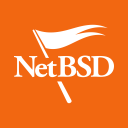Difference between revisions of "PINE A64 Software Releases"
(→Fedora Base Image: headline fixed) |
(→Fedora 27 and 28 Image: outdated) |
||
| Line 61: | Line 61: | ||
** username: root | ** username: root | ||
** password: fedora | ** password: fedora | ||
== openSUSE == | == openSUSE == | ||
Revision as of 00:18, 5 February 2023
This page contains a list of all available releases for the PINE A64(+), as well as links to other resources.
Note that the PINE A64(+) images are not compatible with the PINE A64-LTS due to LPDDR3 memory configuration. For PINE A64-LTS, please use the SOPINE Software Releases.
Linux
Special thanks to Sunxi community and longsleep for their contributions
Below you will find useful links to various resources and forum threads:
- Sunxi PINE64 Page
- Longsleep BSP Linux Builds Download Page
- Longsleep BSP Linux Kernel Thread on PINE64 Forum
- Longsleep BSP Xenial Thread on PINE64 Forum
- Longsleep BSP Arch Linux Thread on PINE64 Forum
Armbian
Armbian is a Linux distribution designed for ARM boards. They are usually Debian or Ubuntu flavored.
Download:
AOSC
AOSC OS is a general purpose Linux distribution that strives to simplify user experience and improve free and open source software for day-to-day productivity. To learn more about AOSC, please visit the official AOSC website.
| ⚠️ The linked release is outdated and should no longer be used! |
Download:
- https://aosc.io/downloads/ (supports the microSD card and eMMC, 8GB or more)
| Default credentials | |
|---|---|
| Default user | aosc/anthon
|
Fedora
Fedora 32 Minimal Build Image [microSD Boot]
- Suitable for 1GB/2GB PINE A64+ Board, not advise to run on 512MB PINE A64 Board
- Fedora 32 with kernel from Armbian 5.7.15 (minimum build)
- DD image (for 8GB microSD card and above)
- MD5SUM: 6b9c9fd83a7c0c094efb569dc7fe90df
- Fedora 32 Minimal Download
- Login with
- username: root
- password: fedora
Fedora 32 Server Build Image [microSD Boot]
- Suitable for 1GB/2GB PINE A64+ Board, not advise to run on 512MB PINE A64 Board
- Fedora 32 with kernel from Armbian 5.7.15 (server build)
- DD image (for 8GB microSD card and above)
- MD5SUM: df868e4022726b9326ea52bae1cd9008
- Fedora 32 Server Download
- Login with
- username: root
- password: fedora
openSUSE
oepnSusu Tumbleweed Community Build Image [microSD Boot]
- DD image to microSD card and boot. Highly recommend using Etcher
- This is headless build, please use serial console or SSH to configure
Please follow this https://en.opensuse.org/HCL:Pine64 openSUSE wki site] or bring up, upate and discussion
OpenWRT
OpenWRT Community Build Image [microSD Boot]
- DD image to microSD card and boot. Highly recommend using Etcher
- This is headless build, please use serial console to configure
- Login with
- username: [not available]
- password: passwd
FreedomBox
Stable built
- DD image to microSD card. Highly recommend using Etcher
- This is a headless build, not HDMI output.
- Please plug-in Ethernet cable first before initial power up. After power up for 10 minutes, using browser and type in https://fredombox.local to setup. Browser may warms for unsecure site and please proceed with exception.
- Freedom Manual: https://wiki.debian.org/FreedomBox/Manual
- For more information about FreedomBox, please visit https://www.freedombox.org
- Direct download from FreedomBox site
- File Size: 418MB
- Direct download from FreedomBox site
motionEyeOS
- motionEyeOS is a Linux distribution that turns a single-board computer into a video surveillance system. The OS is based on BuildRoot and uses motion as a backend and motionEye for the frontend
- Visit the motionEyeOS GitHub and its GitHub Wiki for more information
- Suitable for 1GB/2GB PINE A64(+) variants
- DD image (for 8GB microSD card and above)
- Login with
- Username: admin
- Password:
- There are 2 ways to interact with the OS:
- Scan for its IP with hostname MEYE-* and go to the admin web interface https://[PINE A64(+) motionEyeOS IP Address] and after login, you should able to see the output of the CAMERA MODULE on the web interface
- Use the PINE64 USB SERIAL CONSOLE/PROGRAMMER and login
DietPi
- DietPi is a lightweight, yet easy to setup and feature-rich Linux distribution, based on Debian.
- To find out more about DietPi, please visit the official documentation.
- Discuss the PINE A64 build on the PINE64 forum thread.
- DD image (for 4 GiB micro SD card and above)
- Login with
- Username: root
- Password: dietpi
LibreELEC
Nightly Build Image [microSD Boot]
- DD image to microSD card and boot. Highly recommend using Etcher
- Suitable 512MB PINE A64 Board
- Suitable for 1GB/2GB PINE A64+ Board
- Pine A64+ build direct download from Libreelec nightly build site and look for LibreELEC-A64.arm-9.80-nightly-xxxxxxxx-xxxxxxx-pine64-plus.img.gz
- FEATURES:
- mainline kernel & U-Boot
- latest Kodi
- HDMI CEC
- multi channel HDMI audio (correct audio output must be selected)
- IR receiver
NEMS Linux
https://files.pine64.org/sw/pine64_installer/json/nems.jpg
- NEMS stands for "Nagios Enterprise Monitoring Server" and it is a modern pre-configured, customized and ready-to-deploy Nagios Core image designed to run on low-cost micro computers.
- To find out more about NEMS on the PINE64 and available tweaks to the installation please visit the PINE64 forum thread
- Suitable for 512MB/1GB/2GB PINE A64(+) variants
- Login with
- Username: nemsadmin
- Password: nemsadmin
- Installation Guide
- To find out more on NEM Linux, please visit their site
NEMS Linux [v1.5 - Build 1]
- DD image (for 16GB microSD card and above)
- Download torrent seed from NEMS Linux
- Direct download from pine64.org
- MD5 (XZ file): ac508549a829021491cfa23aeb18a063
- File Size: 2.66GB
BSD
NetBSD
NetBSD is a free, fast, secure, and highly portable Unix-like Open Source operating system. To learn more about NetBSD please visit NetBSD main page.
Download:
- Direct download (345MB, select PINE A64 / PINE A64+)
Notes:
- NetBSD community build for microSD boot
- Instructions concerning enabling SSH can be found here
| Default credentials | |
|---|---|
| Root user and SSH | root/[none]
|
Windows 10 IoT
- PINE64 Win10 IoT build already passed the Microsoft Azure certification
- For step by step installation process, please follow this github link
- For release note, please follow this github link
- For Microsoft Azure IoT SDKs, please follow this github link
Win10 IoT 10.0.15063.0_20170602
- 10.0.15063.0_20170602
- Update Notes since 10.0.15063.0_20170524:
- Fix the failure of default application installation caused by a app certification issue
- Fix that the default application cannot start automatically after installation
- Fix Ethernet initialization problem and now the Ethernet will start successfully every time
- Enable the usermode access for all unusable GPIO pins in Pi-2 bus( later provide a UWP sample to show how to control these pins )
- Extra Notes:
- If you want to connect a USB peripheral for extension, please connect a USB hub to the lower USB interface as the medium
- Please refer to Part 2 of chapter 3: Debug with a virtual net over USB on how to use the upper USB interface
- Update Notes since 10.0.15063.0_20170524:
- 10.0.15063.0_20170524
- Some Updates:
- Update the OS version to build v.10.0.15063.0 (Creators Update)
- New page style of Device Portal, visit https://deviceipaddr:8080 to check it
- Built-in Cortana assistant, need to be enabled in settings page in default app and Device Portal
- Support on-screen keyboard, need to be enabled in Device Portal
- Enable 100M Ethernet and fix some bugs
- Support built-in UART bus in A64 SoC(not built in the ffu, later provide driver binary and deployment helper)
- Support built-in IR module in A64 SoC(not built in the ffu, later provide source code and dev doc for developers in community)
- Known Issues:
- Kernel debug is enabled by default. This will slow the bring-up process. If a kernel debug is not necessary for you, visit Device Portal and navigate to Processes->Run Command page, run this command to disable:
- Bcdedit /store C:\EFIESP\EFI\Microsoft\boot\BCD /set {default} debug off
- An PnP bug in audio device may cause a blue screen when acting software shutdown
- Ethernet device may not start with problem code 12 at the first time to bring up
- Kernel debug is enabled by default. This will slow the bring-up process. If a kernel debug is not necessary for you, visit Device Portal and navigate to Processes->Run Command page, run this command to disable:
- Some Updates:
- Windows IoT Direct Download from pine64.org
- MD5 (FFU file): ACA617C0C9CEDA705DD510BF041E79B4
- File Size: 957MB
Linux BSP SDK
Linux BSP Kernel 4.9
- Direct Download from pine64.org (5.4GB, MD5 of the TAR-GZip file 7736e3c4d50c021144d125cc4ee047a4)
Android SDK
Android Oreo (v8.1)
- Direct Download from pine64.org (24.94GB, MD5 of the TAR-GZip file b0394af324c70ce28067e52cd7bc0c87)








